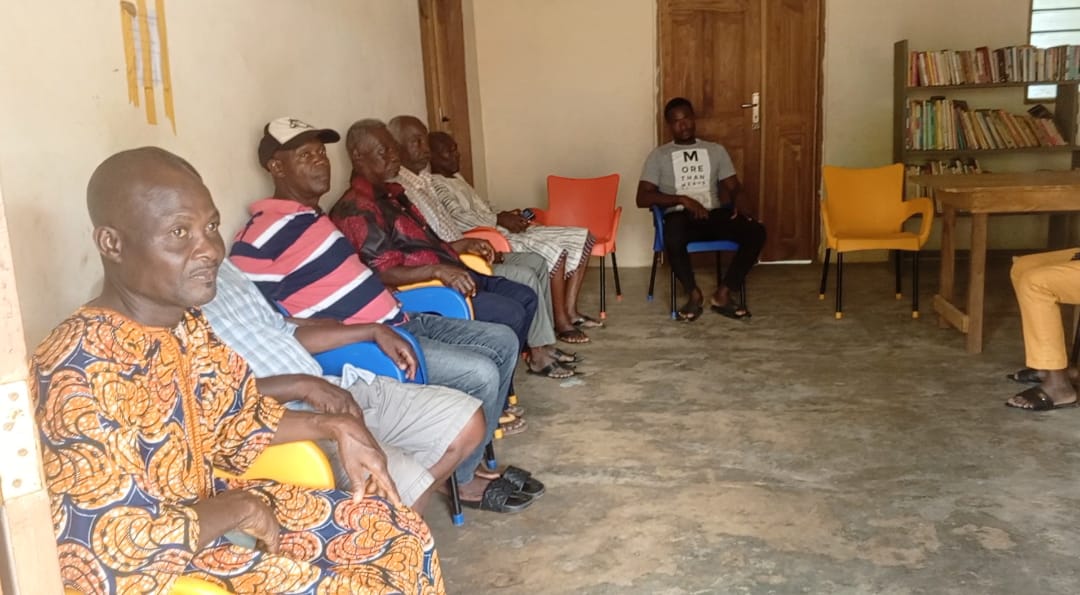
By Samuel Asamoah
Serlom Ohene’s face held both hope and heartbreak. After years of knocking on doors and surviving on the edge of despair, he had finally aced an interview with an international NGO. A dream job, one that promised not just a salary, but dignity. But that dream turned into dust — not because he failed, but because he didn’t see the offer letter.
The reason? Poor telecommunication network in his hometown, Tsibu, in the Dzolo Kpuita District of the Volta Region.
“I moved out of town briefly and only then saw the message,” Serlom recounts, his voice trembling. “The email had been sent days earlier. They asked me to report to work… but the date had passed. I missed it.”
His is not an isolated story. In Tsibu and adjoining communities like Bethel, stories of missed opportunities, delayed emergencies, and daily frustration are as common as the morning sun. Here, in this lush yet neglected part of Ghana, a stable phone signal is a luxury — often only accessible by scaling hills, standing under certain trees, or wandering aimlessly in search of “network spots.”
The Hidden Cost of Digital Isolation
A walk through Tsibu reveals an unsettling sight — residents pacing fields and roadside shoulders, phones held high above their heads, desperately searching for a bar of signal.
“It is a daily struggle,” says Madam Esi Kumah, a mother of four. “Sometimes your child is sick and you want to call a motorbike rider (Okada) to take you to the clinic, and you just can’t reach anyone.”
At the Tsibu Community Health Center, health professionals are no less frustrated. “We’ve had cases where a woman in labor or a road accident victim needed an ambulance,” says a Nurse. “But without network, we’re left helpless. Every second matters in an emergency. And sometimes, we lose those seconds.”
A Cry Ignored
Despite the severity of the issue, local leaders say their appeals have gone unanswered. According to elders in the community, they have willingly offered free land to any telecommunication company willing to erect a mast. One company, they noted, even conducted feasibility studies and earmarked a suitable site. But since then, nothing has moved forward.
“We’ve waited, pleaded, and watched. Still no mast,” says Percy Feyi, a spokesman for the community, his voice tinged with disappointment. “We are not asking for too much. Just the chance to connect — to be part of the rest of Ghana.”
Bethel: Stranded in Silence
In the nearby farming community of Bethel, the situation is even more dire. Accessible only by a poor, often impassable road, Bethel’s residents depend on motorbike taxis for everything from market trips to medical emergencies. Yet, without a working network, even calling for help becomes impossible.
“You need to search hard for a signal,” Jones Doe, an opinion leader. “Sometimes you won’t find it at all. When your child is burning with fever at midnight, and you can’t even call for a ride — it’s a nightmare.”
A Call for Urgent Government Intervention
The residents of Tsibu and its surrounding areas are now turning their hopes to the Ministry of Communication and Digitalisation. They believe that the time for promises is over — and action is long overdue.
“We cannot wait until someone dies from a preventable emergency or until our young people give up entirely,” said Samuel Afasu the Chief’s spokesman. “We need telecom masts. We need reliable network. We need to be heard.”
For Serlom Ohene, the job he lost may never come back. But for the rest of Tsibu, the hope remains — that their call for help will finally reach the right ears, and that one day, the ‘search for signal’ will be a thing of the past.

